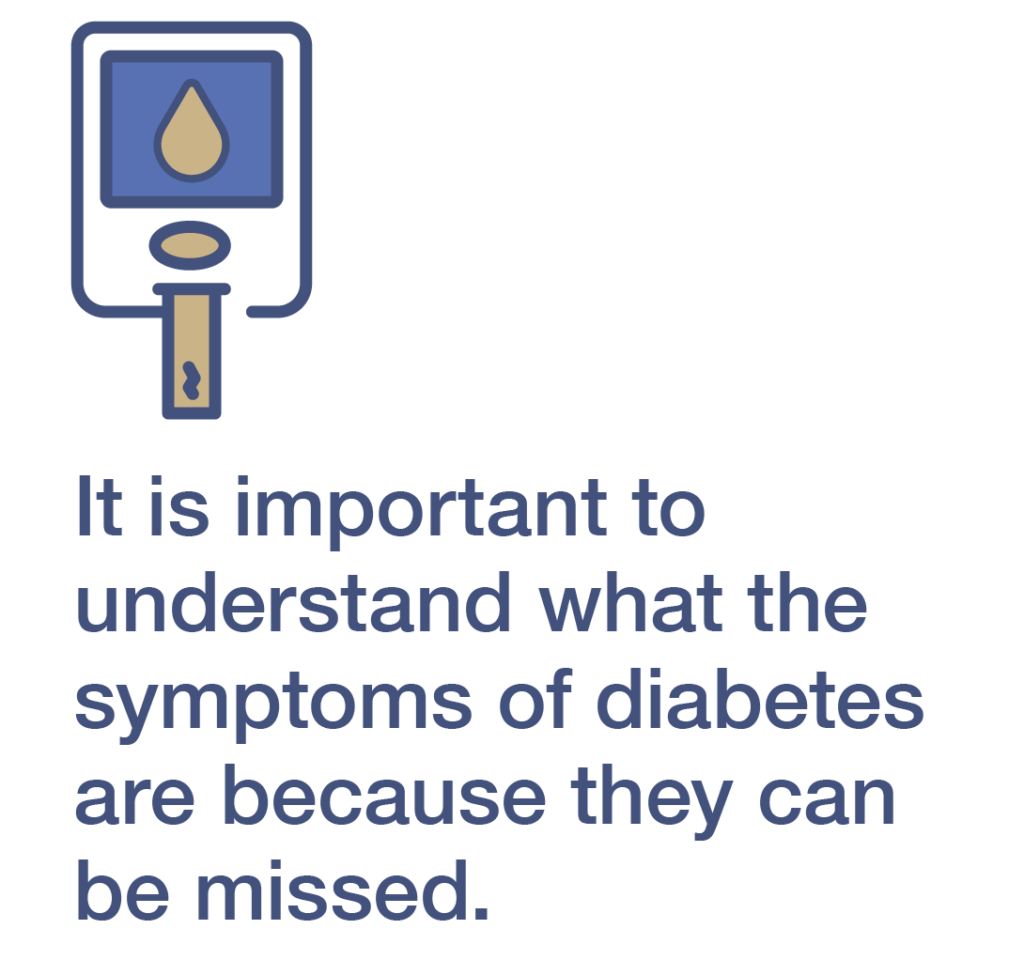If you suspect someone may have diabetes based on their symptoms, you should contact the GP who is likely to make an assessment and perform blood tests to confirm the diagnosis.
The Good Practice Clinical Guidelines for diabetes (2010) suggests that all residents in care homes should be screened for diabetes on admission and then screened every two years. This can be done by the GP.
We know the risk of developing type 2 diabetes increases with age particularly where they may have other risk factors i.e. ethnicity, sedentary lifestyles, increasing weight and/or obesity and poor diet e.g. high fat and/or high carbohydrate diet. We also know that socio economic factors contribute to risk factors e.g. poor home conditions, limited financial resources and certain medications e.g. steroids; antipsychotic medications that can increase the risk of developing type 2 diabetes.
Ethnicity and Diabetes
It is not clear how ethnicity increases the risk of diabetes, but evidence suggest that people from Black African, African Caribbean and South Asian backgrounds are at risk of developing type 2 diabetes from the age of 25 as opposed to a white population where the risk increases from the age of 40. It is also known that in the Asian population they are more predisposed to becoming insulin resistant (the insulin does not work efficiently) at a younger age. 1Diabetes UK (DUK) Accessible from: https://www.diabetes.org.uk/preventing-type-2-diabetes/diabetes-ethnicity
It is important to understand what the symptoms of diabetes are because they can be missed.
Knowing the symptoms of diabetes and how it is diagnosed is really important when managing people in care homes and within their own homes, because they may not be able to tell you. If diabetes is suspected report symptoms to the GP or health care provider.
Information on blood tests used to diagnose diabetes you can click the following link:
Diagnose diabetes
Please access link for information on blood tests used to diagnose diabetes

05 Diagnosing Diabetes
- 1Diabetes UK (DUK) Accessible from: https://www.diabetes.org.uk/preventing-type-2-diabetes/diabetes-ethnicity
